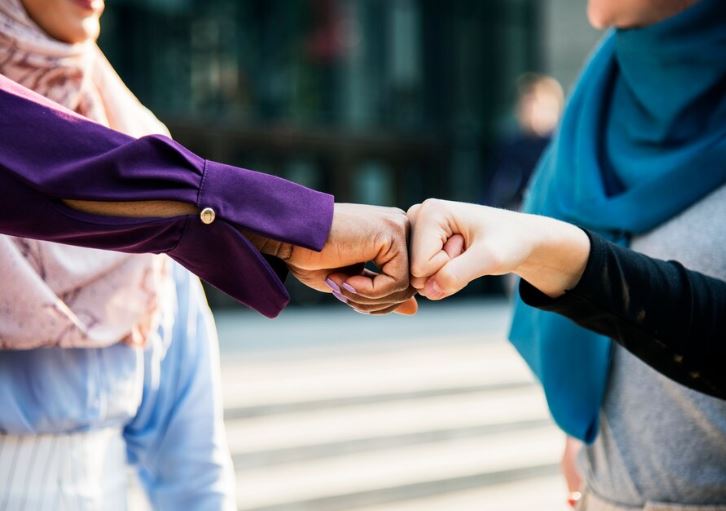Gender Equality
The content of Quran Hakim depicts the context of Islam and its teachings. The role of Sunnah is explaining and defining the meaning of its Quranic text. We get to know from both these sources that Allah SWT has created men and women so that they get tranquility, bliss, and joy in the company of each other. Accountability, responsibility and spiritual equality for both men and women are a quite clearly explained in the Quran. The Holy Qur’an clearly reveals and clarifies on the issue of gender equality in Sura An-Nisa (The Women).
“O humans! Fear your Lord Who created you from a single spirit and made its mate from him, and made them couple from whom spread many men and women, and fear Allah in whose name you ask for and pay attention to the relationships you tie, Undoubtedly Allah watches you all the time.” –An-Nisaa, 4:1
The Spiritual Aspect
- According to the Qur’an men and women have the same spiritual human nature.
- Both genders are created with same human and spiritual nature.
- Both genders are dignified and trustees of Allah on earth.
- According to the Qur’an,the woman is not blamed for the “fall of man.”Pregnancy and childbirth are not seen as punishments for “eating from the forbidden tree.” On the contrary, the Qur’an considers them to be grounds for love and respect due to mothers.
- Both men and woman are obliged to follow same religious and moral duties and responsibilities. They will both face the consequences of their deeds.
- Qur’an makes it clear that basis of superiority is piety and righteousness not gender, color, or Nationality.
The Economic Aspect
- The Islamic Shariah recognizes the full property rights of the woman before and after marriage.
- She enjoys to full financial support during marriage and during the waiting period.
- Parents are duty bound to support and show kindness and justice to their daughters.
The Legal and Political Aspect
- In Islam, both genders are equal in front of law and courts. Hence justice is genderless.
- The role of men and women equal is equal gender equality in Islam except it precludes women from two positions which is allowed for men and that is leading prayer and the state headship.
- Male and females are encouraged to collaborate and participate in the political and social aspects of society and public affairs.
“And the Muslim Men and Women are protectors of one another, they bid for good and forbid evil, they pray regularly, give charity (zakat) and obet Allah and his Apostle. They are those who will have Allah’s mercy bestowed on; for Allah is the Exalted, Dominant, Wise.” –Al-Tauba, 9:71
The Historical Aspect
In the prophetic history, the status of Messenger is due to the physical suffering and demands associated with their role. It does not have to do with any spiritual inferiority.
Conclusion
We do not get the understanding of Islamic rules genders equality imported, which most of the non-Muslim countries practice. Islam has given rights and duties to both genders. The real perspective of this notion can only be understood by the Prophetic model based on the Qur’an and Hadith.

